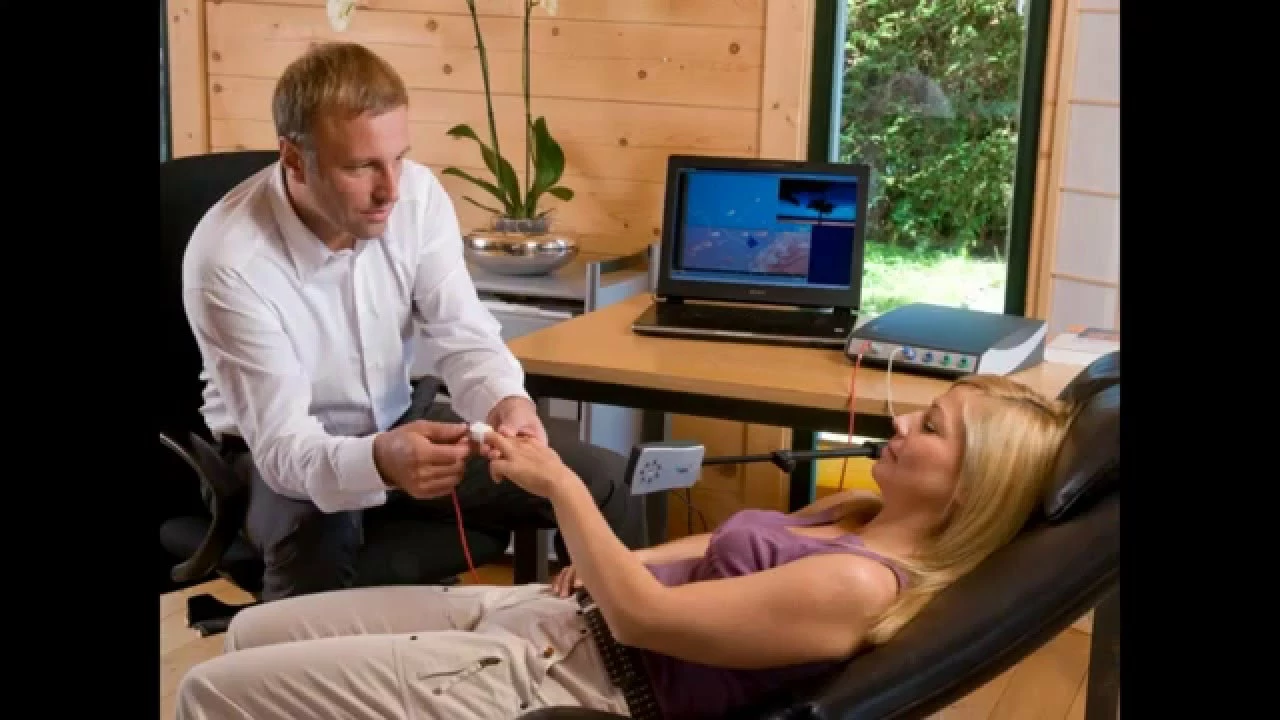Understanding Myeloma and Its Side Effects
Myeloma, also known as multiple myeloma, is a type of blood cancer that affects plasma cells. These cells are responsible for producing antibodies that help our body fight infections. When myeloma develops, these cells begin to multiply uncontrollably, leading to various health problems like anemia, kidney problems, and bone damage.
As with any cancer, myeloma comes with its fair share of side effects from both the disease itself and the treatments used to combat it. Some of the common side effects include fatigue, nausea, pain, and difficulty sleeping. In this article, we will explore the potential benefits of biofeedback as a complementary therapy to help manage these side effects.
What Is Biofeedback and How Does It Work?
Biofeedback is a non-invasive technique that teaches individuals to control their body's functions, such as heart rate, breathing, and muscle tension. It involves the use of electronic or electromechanical devices that provide information about the body's processes in real-time. This allows the person to become more aware of these processes and develop strategies to control them.
During a biofeedback session, a therapist will attach sensors to the patient's body, which will monitor various physiological functions. The therapist then guides the patient through relaxation techniques and helps them understand the connection between their body's responses and the symptoms they are experiencing. With regular practice, patients can learn to control these responses and alleviate their symptoms.
Managing Pain with Biofeedback
One of the most common side effects of myeloma and its treatments is pain, which can be caused by bone damage, nerve compression, or inflammation. Biofeedback has shown promise in helping patients manage their pain by teaching them to control their body's response to it.
For example, a patient may learn to control their muscle tension or breathing rate, which can help reduce the perception of pain. Additionally, biofeedback can help patients develop coping strategies to deal with pain when it arises, such as relaxation techniques or distraction methods. Overall, incorporating biofeedback into a myeloma patient's pain management plan may help improve their quality of life.
Reducing Fatigue with Biofeedback
Fatigue is another common side effect of myeloma, and it can significantly impact a patient's daily life. Biofeedback can help manage fatigue by teaching patients to become more aware of their body's energy levels and develop strategies to conserve energy.
For instance, a patient may learn to recognize when their body is becoming fatigued and practice relaxation techniques to help them rest and recharge. Biofeedback can also help patients improve their sleep quality, which is essential for combating fatigue. By learning to control their body's functions, like heart rate and muscle tension, patients may be able to fall asleep faster and sleep more soundly.
Alleviating Nausea through Biofeedback
Nausea is a common side effect of many cancer treatments, including those for myeloma. It can be caused by chemotherapy, radiation, or medications used to manage other side effects. Biofeedback has shown promise in helping patients reduce nausea by teaching them to control their body's response to it.
For example, a patient may learn to control their breathing rate or muscle tension, which can help alleviate nausea. Additionally, biofeedback can help patients develop coping strategies to deal with nausea when it arises, such as focusing on calming thoughts or engaging in relaxation techniques. By incorporating biofeedback into their treatment plan, myeloma patients may be able to better manage their nausea and improve their overall well-being.
Improving Sleep Quality with Biofeedback
Difficulty sleeping is a common issue for many myeloma patients, whether it's due to pain, anxiety, or other side effects of treatment. Poor sleep quality can exacerbate other symptoms and negatively impact a patient's overall well-being. Biofeedback can help improve sleep quality by teaching patients to control their body's functions, like heart rate and muscle tension, which may help them fall asleep faster and sleep more soundly.
Additionally, biofeedback can help patients develop relaxation techniques and coping strategies to deal with sleep disturbances when they arise. By incorporating biofeedback into their treatment plan, myeloma patients may be able to improve their sleep quality and overall well-being.
Final Thoughts on Biofeedback and Myeloma
While biofeedback is not a cure for myeloma, it has shown promise as a complementary therapy to help patients manage the side effects of their disease and treatments. By teaching patients to control their body's functions, like heart rate, breathing, and muscle tension, biofeedback can help alleviate symptoms like pain, fatigue, nausea, and sleep disturbances.
It's essential for myeloma patients to work closely with their healthcare team to develop a comprehensive treatment plan, which may include biofeedback alongside traditional medical treatments. As with any therapy, it's crucial to discuss the potential benefits and risks with your healthcare provider before incorporating biofeedback into your treatment plan.







Lucinda Harrowell
18 June 2023 - 19:50 PM
I've been sitting with this for a while. Biofeedback doesn't cure anything, but it gives you back a sliver of control when everything else feels like it's slipping away. It's not magic, but it's quiet power. Like learning to breathe again when you forgot how.
Joe Rahme
19 June 2023 - 00:15 AM
My dad tried this during chemo. Said it didn't make the nausea go away, but it made him feel less like he was drowning in it. Small wins matter.
Leia not 'your worship'
19 June 2023 - 04:03 AM
I mean, sure, biofeedback sounds nice, but have you seen how much Big Pharma hates anything that doesn't require a prescription? They're probably lobbying against this right now. It's all about profit, not healing. 🤔
Jo Sta
20 June 2023 - 15:49 PM
This is just another wellness cult disguised as science. If you're spending time learning to breathe instead of getting real treatment, you're wasting your life. Get a doctor, not a yoga instructor.
KALPESH GANVIR
21 June 2023 - 22:43 PM
I've seen patients in Mumbai use breath control during radiation. Not a cure, but it helps them sit through sessions without screaming. Sometimes, the body needs to remember it can still be calm.
April Barrow
23 June 2023 - 19:06 PM
Biofeedback is evidence-based for chronic pain and insomnia. The studies are solid. It's not a replacement, but it's a legitimate adjunct. Stop dismissing it because it's not a pill.
Melody Jiang
24 June 2023 - 18:49 PM
I think what's beautiful here is how it turns patients from passive recipients into active participants. You're not just waiting for the medicine to work-you're learning your own body's language. That’s dignity.
alex terzarede
25 June 2023 - 06:00 AM
The research on heart rate variability and cancer-related fatigue is promising. A 2021 meta-analysis in JAMA Oncology showed moderate effect sizes. Not a miracle, but worth trying if you're not getting relief elsewhere.
Dipali patel
25 June 2023 - 13:32 PM
BIOFEEDBACK IS A GOVERNMENT COVERUP TO MAKE YOU THINK YOU CAN CONTROL YOUR BODY WHEN THEY'RE POISONING YOU WITH FLUORIDE AND 5G!!! THEY WANT YOU TO BELIEVE IN BREATHING SO YOU WON'T ASK ABOUT THE VACCINE MICROCHIPS!!! 🤯
Jasmine L
26 June 2023 - 11:11 AM
I tried this after my last round. It didn't fix everything, but I slept for 6 hours straight for the first time in months. 🙏 peace of mind is a real thing.
lisa zebastian
27 June 2023 - 12:48 PM
Biofeedback? That's just placebo with wires. The real problem is that oncologists don't want patients feeling empowered. They want you dependent. Wake up.
Jessie Bellen
28 June 2023 - 12:53 PM
This is why people die early. You're not curing cancer, you're meditating. Get real.
Jasmine Kara
29 June 2023 - 15:19 PM
i tried biofeedback and it kinda worked? not sure if it was the device or just me chillin. but my pain was less weirdly
Richie Lasit
30 June 2023 - 14:34 PM
Listen. If you're tired, in pain, or can't sleep-try this. It costs nothing but time. And if it gives you one good night? Worth it. You owe yourself that much.
arthur ball
30 June 2023 - 21:48 PM
I was skeptical until I saw my wife use it. She went from crying in bed every night to laughing at dumb cat videos while her heart rate slowed down. I cried. Not because it cured her-because for the first time, she felt like she had a tool. Not just a victim.
Harrison Dearing
1 July 2023 - 19:08 PM
This is why I hate modern medicine. You're telling people to breathe? That's it? No drugs? No magic wand? Just... chill? 🙄 I need a pill that fixes everything. Not a breathing exercise.
Justice Ward
3 July 2023 - 05:59 AM
Biofeedback is like teaching your body to whisper instead of scream. The pain doesn't vanish, but the noise around it quiets. You stop fighting it and start listening. And sometimes, listening is the bravest thing you can do.